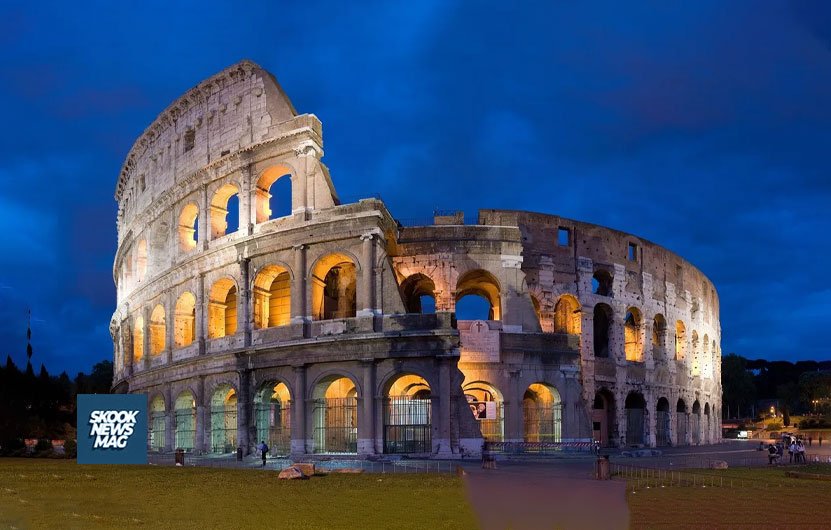10 Historic Events That Shaped the Modern World
Throughout history, there have been pivotal moments that have profoundly influenced the course of human civilization. These historic events have shaped the world we live in today, molding our culture, politics, and societal values. Understanding these events is crucial for developing a comprehensive worldview and appreciating the complexities of our present reality.
In this article, we will explore ten historic events that have had a lasting impact on the modern world. From cultural revolutions to technological advancements, these events have shaped the trajectory of human progress and continue to resonate in our lives.
The Renaissance: A Cultural Revolution
The Renaissance stands as a testament to the power of human creativity and intellectual curiosity. This transformative period, spanning from the 14th to the 17th century, witnessed a resurgence of art, science, and humanism. Visionary figures such as Leonardo da Vinci and Michelangelo redefined artistic expression, while thinkers like Galileo Galilei and Nicolaus Copernicus revolutionized our understanding of the universe. The Renaissance also emphasized the importance of education, individualism, and critical thinking, laying the foundation for modern philosophical and societal values.
The Enlightenment: The Age of Reason
The Enlightenment, often referred to as the Age of Reason, marked a shift in intellectual and philosophical discourse. Emerging in the 17th and 18th centuries, this movement prioritized reason, knowledge, and individual rights. Thinkers like John Locke and Voltaire championed concepts such as natural rights, religious tolerance, and the power of democracy. The Enlightenment challenged established power structures and fostered an environment conducive to the emergence of democratic systems, scientific progress, and religious freedom.
The Industrial Revolution: Transforming Society
The Industrial Revolution, which began in the late 18th century, heralded a new era of technological advancements and societal transformation. This period witnessed the mechanization of manufacturing processes, the invention of steam power, and the development of transportation and communication networks. These innovations revolutionized agriculture, transportation, and industry, leading to unprecedented economic growth and urbanization. The Industrial Revolution also gave birth to the middle class and brought forth significant social and economic changes that continue to shape our world today.
World Wars: Shifting Global Power
The two World Wars of the 20th century represent some of the most devastating and consequential events in human history. World War I, triggered by complex alliances and escalating tensions, marked the decline of empires and the redrawing of national borders. It set the stage for World War II, which witnessed the rise of totalitarian regimes, mass atrocities, and the Holocaust. The aftermath of these wars led to a reconfiguration of global power dynamics, the establishment of the United Nations, and a renewed commitment to international cooperation and diplomacy.
The Space Age: Exploring the Final Frontier
The Space Age, ignited by the Space Race between the United States and the Soviet Union during the mid-20th century, opened doors to a new realm of scientific exploration and technological advancement. The successful launch of Sputnik, the first artificial satellite, and subsequent missions to the moon captivated the world’s imagination. The advancements in space technology revolutionized communication systems, weather forecasting, and scientific research. The Space Age not only demonstrated humanity’s ability to reach beyond Earth’s boundaries but also fostered a sense of collective achievement and inspired future generations of scientists and explorers.
The Civil Rights Movement: Equality and Justice
The Civil Rights Movement in the mid-20th century was a watershed moment in the fight for racial equality and social justice. Led by inspiring figures like Martin Luther King Jr., Rosa Parks, and Malcolm X, this movement aimed to dismantle institutionalized racism and segregation in the United States. Through nonviolent protests, marches, and acts of civil disobedience, activists challenged discriminatory laws and demanded equal rights for all citizens. The Civil Rights Movement had a profound and lasting impact on civil rights legislation, societal attitudes, and the ongoing struggle against discrimination.
The Information Age: Digital Revolution
The Information Age, born in the late 20th century, ushered in a new era of interconnectedness and profound technological change. The rise of computers and the internet revolutionized communication, commerce, and access to information. It transformed the way we connect with others, conduct business, and acquire knowledge. The Information Age brought both opportunities and challenges, including concerns about privacy, cybersecurity, and the digital divide. Today, we find ourselves navigating a rapidly evolving digital landscape that continues to shape our daily lives and societal structures.
The Fall of the Berlin Wall: Symbol of Change
The fall of the Berlin Wall in 1989 symbolized the end of an era characterized by political division and ideological confrontation. The construction of the wall in 1961 had physically separated East and West Berlin, serving as a powerful symbol of the Cold War and the Iron Curtain. Its fall, driven by peaceful protests and a desire for freedom, led to the reunification of Germany and marked the beginning of the end of the Cold War. The fall of theBerlin Wall had global implications, paving the way for new political alliances, the dismantling of communist regimes, and the reconfiguration of the global geopolitical landscape.
The 21st Century: Challenges and Opportunities
As we navigate the 21st century, we face a multitude of challenges and opportunities that will shape the future of our world. Globalization has interconnected economies and cultures, presenting both economic benefits and cultural challenges. Climate change poses an existential threat, demanding collective action and sustainable solutions. Technological advancements continue to reshape our society, economy, and culture, creating new possibilities and ethical dilemmas. In this rapidly changing landscape, individuals must learn from history, engage in critical thinking, and actively participate in shaping a better future for generations to come.
Conclusion
Historical events have played a pivotal role in shaping the modern world we inhabit. From the Renaissance to the Information Age, these transformative moments have left an indelible mark on our culture, politics, and societal values. By understanding and appreciating these events, we gain a deeper understanding of our present reality and the challenges and opportunities that lie ahead. Let us remember the lessons of history and actively engage in shaping the future, ensuring a world that is more just, inclusive, and prosperous for all.
FAQs
What is artificial intelligence (AI)?
Artificial intelligence refers to the development of computer systems that can perform tasks that typically require human intelligence. These systems are designed to perceive their environment, reason, learn, and make decisions or take actions to achieve specific goals.
What is machine learning (ML)?
Machine learning is a subset of artificial intelligence that focuses on enabling computers to learn and improve from experience without being explicitly programmed. It involves developing algorithms and models that can analyze data, identify patterns, and make predictions or decisions based on that analysis.
What is the Internet of Things (IoT)?
The Internet of Things refers to the network of physical devices, vehicles, appliances, and other objects embedded with sensors, software, and connectivity, enabling them to collect and exchange data. These devices are typically connected to the internet, allowing them to communicate with each other and with humans, leading to improved efficiency and convenience in various domains.
What is blockchain technology?
Blockchain technology is a decentralized and distributed ledger system that records and verifies transactions across multiple computers. It allows participants in a network to maintain a shared database without the need for a central authority. Each transaction, or block, is linked to the previous one, creating a chain of blocks, hence the name “blockchain.”
What is virtual reality (VR)?
Virtual reality is a technology that creates a computer-generated environment that simulates a user’s physical presence and allows them to interact with it. It typically involves wearing a head-mounted display (HMD) that provides a three-dimensional visual and auditory experience, immersing users in a virtual world. VR is used in various fields, including gaming, entertainment, education, and training.






